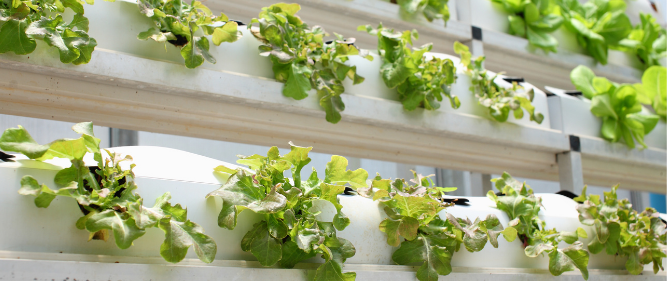Vertical Farming Can Bring Sustainability and Steadiness to the Supply Chain
As we explained in this previous post, vertical farming is a farming technique where crops are grown indoors in a laboratory-like, climate-controlled space. Instead of a crop being limited to geographical regions that provide the ideal growing conditions, vertical farmers can fine-tune the level of water, nutrients, humidity and temperature, as well as light frequency, duration and intensity to create the most ideal environment possible for the crop to grow.
A handful of rural conventional farms are the mega-producers that supply vast swathes of the country with fruits and vegetables, generally located far away from the urban and suburban areas where their crops are shipped to be made available to consumers. The shipping journey — often spanning thousands of miles of highway or open ocean — leads to large amounts of waste and product loss, in addition to creating a large carbon footprint.
Continue Reading “Vertical Farming Can Bring Sustainability and Steadiness to the Supply Chain”




